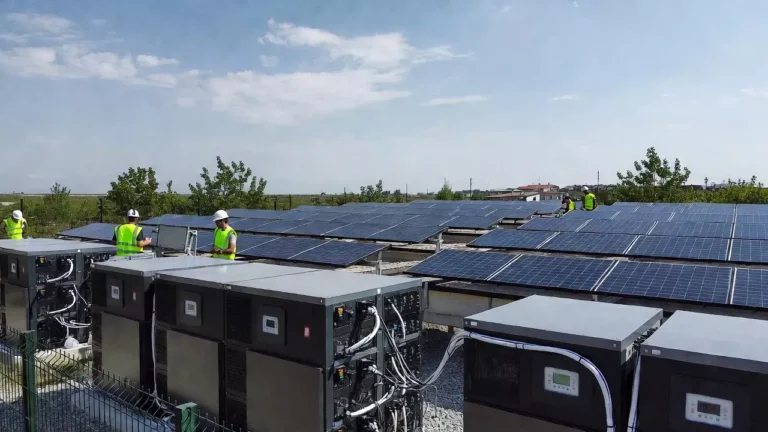
ExxonMobil Foundation STEM Africa Program Honored with Prestigious Local Impact Award for Advancing STEM Education Across the Continent
In a year marked by innovative partnerships and significant educational progress, the ExxonMobil Foundation’s commitment to empowering youth across Africa has garnered international recognition. The ExxonMobil Foundation STEM Africa competition, launched in partnership with Junior Achievement Africa, has been awarded the Local Impact Award for Driving Positive Change in African Communities. This honor was conferred at the prestigious Big Five Board Awards 2025, held in London and presented as part of the Africa Energies Summit — a prominent gathering of leaders committed to the sustainable and inclusive development of the continent.
This recognition affirms the ExxonMobil Foundation’s dedication to fostering educational equity, especially in the science, technology, engineering, and mathematics (STEM) disciplines, through a continent-spanning initiative that has already transformed thousands of young lives. Designed to ignite curiosity, build confidence, and equip students with future-ready skills, the STEM Africa program is becoming a model for socially impactful educational programs across developing regions.
A Vision Rooted in Empowerment and Inclusion
The STEM Africa competition was officially launched in 2024, bringing together the strengths of the ExxonMobil Foundation and Junior Achievement Africa — one of the continent’s largest youth-serving NGOs, known for its focus on entrepreneurship, financial literacy, and workforce readiness. This collaboration reflects a shared vision: to create opportunities for young Africans to develop the knowledge and tools needed to thrive in a rapidly changing, technology-driven world.
From the outset, the program set out to reach high school students in four key African countries: Nigeria, Angola, Namibia, and Mozambique. These countries, strategically selected due to their demographic potential and emerging economic profiles, are home to vast youth populations who stand to benefit from educational interventions aimed at closing the STEM opportunity gap.
The program’s core components include competitive STEM quizzes, team-based challenges, and Innovation Camps — immersive, hands-on workshops where students apply STEM principles to solve real-world problems. Through these formats, the competition encourages participants to think critically, collaborate effectively, and innovate boldly, all while making science and engineering both relevant and exciting.
Empowering Over 3,000 Students in Just One Year
In its inaugural year alone, the ExxonMobil Foundation STEM Africa program directly engaged over 3,000 secondary school students. This level of outreach, achieved within months of launching, reflects both the strong demand for such programs and the effectiveness of the delivery model.
Each participating student experienced a comprehensive educational journey. They began with local and regional quizzes that tested their foundational STEM knowledge, then progressed to more complex tasks in the Innovation Camps. These camps allowed students to explore topics ranging from sustainable energy solutions and digital technology applications to environmental conservation and water purification systems. The emphasis on applying classroom knowledge to real-life issues made the experience not only educational but deeply meaningful.
Notably, the program also reached into underserved communities where students often have limited access to quality STEM instruction or resources. By providing these youth with opportunities typically reserved for more advantaged populations, the program is helping to bridge the educational divide and promote inclusivity in future workforce development.
Measurable Impact and Inspiring Outcomes
One of the most striking results of the 2024 program is its measurable influence on student aspirations and skill development. According to post-program evaluations, an impressive 96.4% of participants reported being more open to or actively pursuing careers in STEM fields after completing the program. This significant shift in attitude demonstrates the potential of targeted educational programs to shape long-term professional trajectories.
Moreover, 82.7% of the students indicated that their problem-solving abilities had improved as a result of the STEM Africa experience. These are not abstract gains — the ability to analyze problems, work collaboratively in teams, and propose innovative solutions are essential skills in today’s global economy. For many of these students, the program marked their first exposure to inquiry-based learning methods and hands-on science exploration.
In testimonials gathered after the events, students described the program as “life-changing,” citing increased confidence, a newfound interest in science, and a belief that they can contribute meaningfully to their communities. Teachers and school administrators also noted a boost in student engagement and motivation in the classroom, underscoring the ripple effects of such interventions.
Recognition at the Big Five Board Awards
The Big Five Board Awards are an annual celebration of leadership, innovation, and impact within the African energy and development sectors. Presented by the organizers of the Africa Energies Summit, the Local Impact Award category specifically honors initiatives that demonstrate tangible contributions to community well-being, especially in education, health, environment, or social inclusion.
The ExxonMobil Foundation STEM Africa competition stood out among a competitive field of nominees for its direct, measurable impact and replicable model. The judging panel emphasized the program’s collaborative structure, broad reach, and strong alignment with Africa’s development priorities, particularly in relation to youth empowerment and workforce readiness.
The award was accepted by representatives of the ExxonMobil Foundation and Junior Achievement Africa at the ceremony in London, where they reaffirmed their commitment to scaling the program in future years and reaching even more students. The acknowledgment by such a distinguished platform reinforces the program’s credibility and positions it for future growth and potential new partnerships.
Scaling for Broader Continental Impact
Buoyed by this recognition, the ExxonMobil Foundation and Junior Achievement Africa are now looking to build on the program’s early success. Plans are underway to expand the STEM Africa competition to additional countries in West and East Africa, including Ghana, Kenya, and Uganda, in the next phase of implementation. This expansion will not only increase the number of participants but also introduce new themes and modules that address region-specific challenges such as climate resilience, digital inclusion, and clean energy innovation.
The partners are also exploring digital tools to support virtual participation and engagement, particularly for students in remote or conflict-affected areas. By incorporating e-learning platforms, mobile-based challenges, and hybrid learning formats, the program aims to remain accessible and adaptable in a variety of settings.
Moreover, the initiative is aligning with government education strategies and local curricula in each country, ensuring it complements rather than competes with national education systems. This integration improves sustainability and opens doors for more institutional support and long-term adoption.
A Model for Meaningful Corporate-Community Engagement
The ExxonMobil Foundation STEM Africa program exemplifies how corporate social responsibility can extend beyond charitable giving to create deep, sustained social value. By investing in educational infrastructure, mobilizing expert partners, and engaging directly with students and schools, the Foundation is building a legacy of empowerment and transformation that will benefit African communities for generations.










